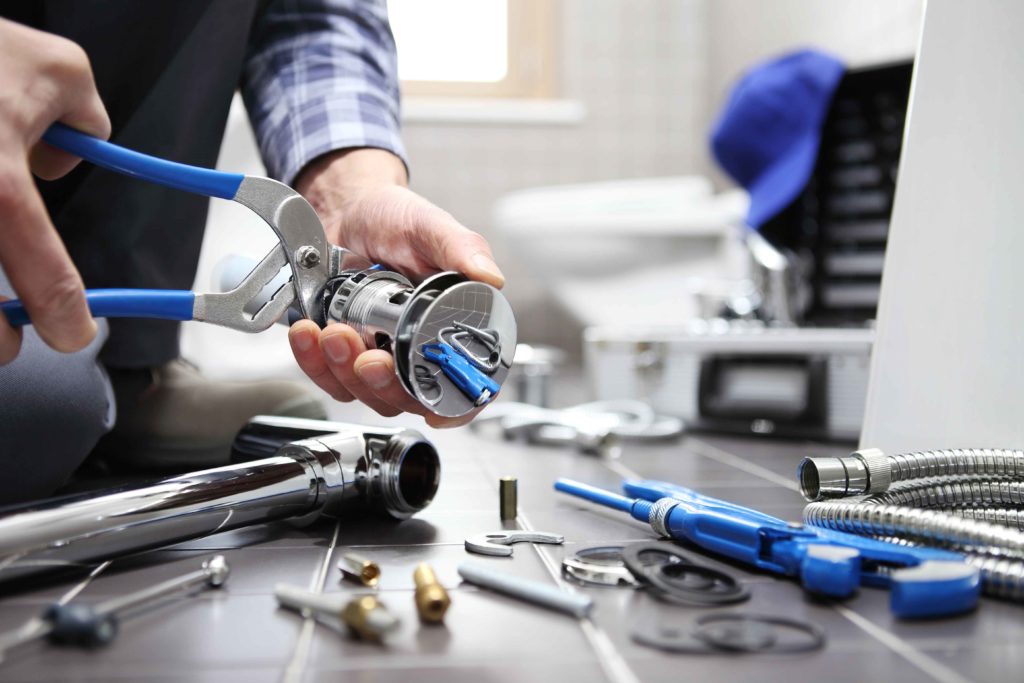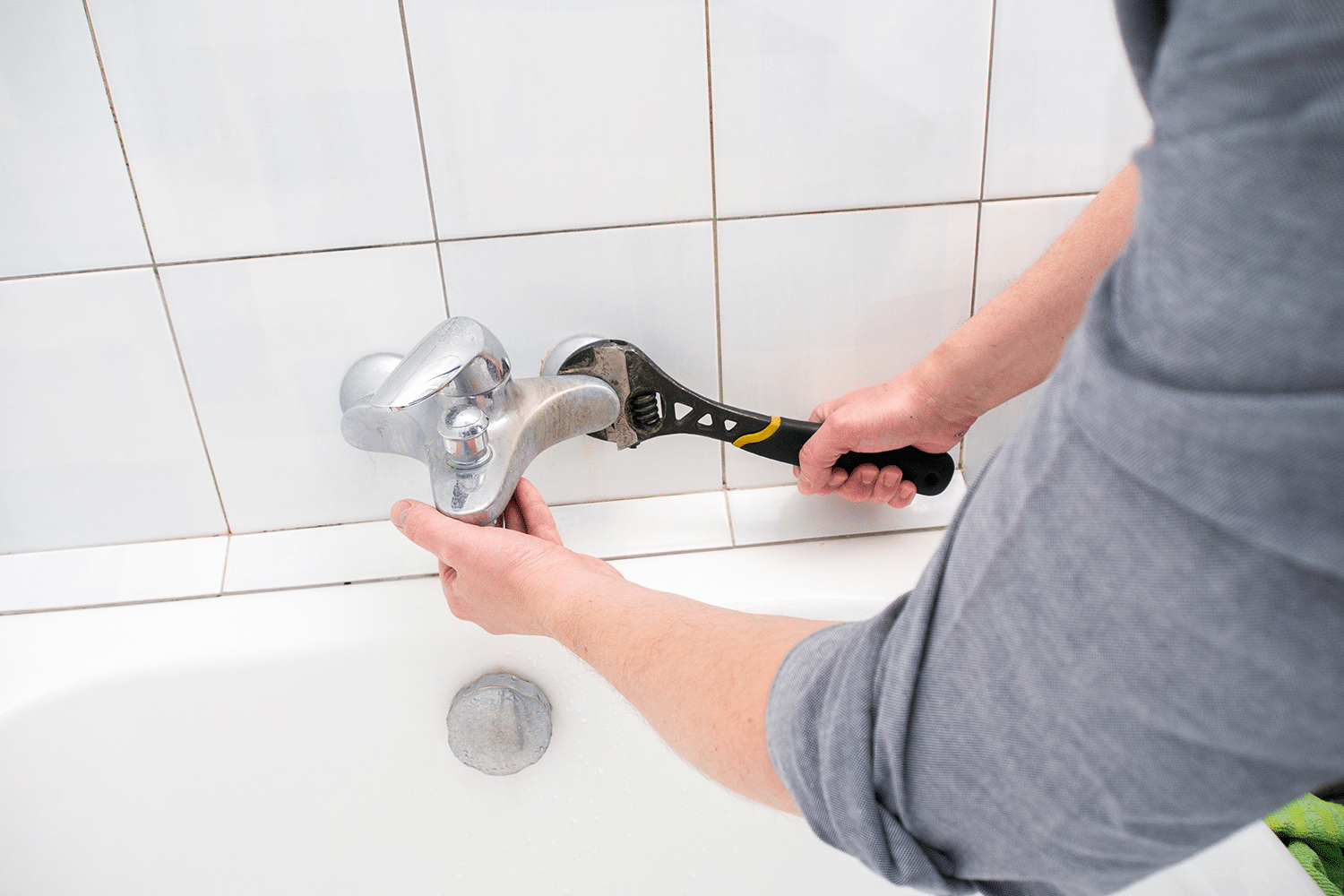My Advantages of Dealing with a Dripping Faucet
My Advantages of Dealing with a Dripping Faucet
Blog Article
The author is making several great annotation related to Leaky Faucets: Why They Happen & What to Do About Them as a whole in the content which follows.

Leaking faucets may look like a minor hassle, but their impact surpasses just the annoyance of the sound. From drainage to incurring unneeded economic prices and health dangers, ignoring a trickling tap can cause different consequences. In this write-up, we'll delve into why it's crucial to resolve this common house problem promptly and successfully.
Wastage of Water
Ecological Influence
Leaking taps contribute substantially to water waste. According to the Environmental Protection Agency (EPA), a single tap trickling at one drip per second can squander greater than 3,000 gallons of water each year. This not only strains water resources however additionally impacts ecological communities and wildlife dependent on them.
Financial Costs
Enhanced Water Expenses
Beyond the environmental effect, leaking faucets can blow up water costs substantially. The accumulated wastefulness with time equates into higher energy expenditures, which might have been prevented with timely repair services.
Prospective Residential Property Damage
Moreover, prolonged leaking can bring about harm to fixtures and surfaces surrounding the faucet. Water build-up can trigger staining, corrosion, and even structural issues if left unattended, leading to extra repair work expenses.
Health and wellness Issues
Mold and Mildew Growth
The continuous existence of moisture from a dripping faucet develops an ideal environment for mold and mildew and mold growth. These fungi not only endanger indoor air high quality yet likewise posture wellness dangers, particularly for individuals with respiratory system conditions or allergic reactions.
Waterborne Illness
Stationary water in leaking taps can end up being a breeding ground for germs and various other microorganisms, raising the danger of waterborne conditions. Contaminants such as Legionella germs grow in stagnant water, possibly causing serious diseases when consumed or breathed in.
DIY vs. Professional Repair service
Pros and Cons of DIY Repair Service
While some might try to deal with a trickling tap themselves, do it yourself repair services feature their very own collection of obstacles. Without correct expertise and devices, do it yourself efforts can worsen the issue or lead to insufficient fixings, lengthening the issue.
Benefits of Hiring a Professional Plumber
Working with an expert plumber guarantees that the underlying cause of the trickling tap is resolved successfully. Plumbing technicians possess the expertise and devices to diagnose and fix faucet problems efficiently, conserving time and minimizing the danger of more damage.
Step-by-Step Guide to Taking Care Of a Dripping Faucet
Tools Called for
Before attempting to repair a trickling tap, gather the required devices, consisting of an adjustable wrench, screwdrivers, replacement components (such as washing machines or cartridges), and plumber's tape.
Usual Faucet Issues and Their Solutions
Determine the kind of faucet and the specific concern triggering the drip. Typical issues consist of damaged washing machines, rusty shutoff seats, or faulty O-rings. Refer to manufacturer instructions or online tutorials for step-by-step guidance on repairs.
Preventive Measures
Regular Upkeep Tips
To stop trickling taps, carry out routine upkeep such as cleaning up aerators, checking for leaks, and changing damaged parts immediately. Furthermore, consider mounting water-saving gadgets or updating to a lot more efficient components.
Significance of Prompt Repairs
Attending to dripping taps as soon as they're observed stops further water waste and possible damage, eventually conserving both water and money over time.
Influence On Building Value
Perception of Well-Maintained Building
Maintaining a residential property in good condition, including attending to upkeep concerns like trickling taps, boosts its regarded worth and worth amongst possible customers or occupants.
Impact on Resale Worth
Characteristics with well-kept plumbing fixtures, consisting of taps, command greater resale values in the real estate market. Resolving trickling faucets can contribute to a favorable perception throughout home evaluations and negotiations.
Ecological Responsibility
Specific Contribution to Preservation
Taking obligation for fixing leaking taps lines up with wider initiatives toward water preservation and environmental sustainability. Every individual's activities collectively make a considerable impact on maintaining precious resources.
Sustainable Living Practices
By focusing on prompt fixings and adopting water-saving practices, people add to lasting living practices that benefit both present and future generations.
Final thought
Attending to a trickling tap surpasses plain ease; it's an important step toward conserving water, decreasing financial costs, and safeguarding health and residential or commercial property. Whether through do it yourself repair work or professional assistance, doing something about it to deal with leaking faucets is a tiny yet impactful method to promote liable stewardship of sources and contribute to a much healthier, a lot more lasting future.
How to Fix a Leaky Faucet: Step-by-Step Repair Guide
A leaky faucet may seem like a simple annoyance, but if it's not fixed promptly, that leak could cost hundreds to potentially thousands. From water damage to mold, mildew, and high water bills, even a tiny leak can be catastrophic if left unattended. Damage like this can even affect the overall value of your home, so it's important to take the right approach for leaky faucet repair. You may need the help of a plumber in some cases, but we've got a few tips you can try on how to fix a leaky faucet before calling the pros.
Four Faucet Types
When you're learning how to fix a leaky faucet, the first step is knowing what kind of faucet you're working with! There are four common types.
Cartridge Faucets
Cartridge faucets come in one- or two-handled varieties. In one-handled cartridge faucets, hot and cold water combines in a single cartridge. In the two-handled versions, hot and cold water are controlled separately and mixed in the faucet.
Ball Faucets
Ball faucets have a single lever you push up and down to adjust the pressure and rotate to change the temperature. A slotted metal ball controls the amount of water allowed into the spout.
Compression Washer Faucets
They're the oldest type of faucet, but they're still used in many homes — especially older ones. Compression faucets have two separate handles that, when turned, raise or lower the washer that seals a water valve. This valve stops water from flowing through the faucet when it is turned off.
Disc Faucets
Disc faucets rarely need to be repaired due to their maintenance-free design. The water flow is controlled by two discs — the upper one raises and lowers against a fixed lower disc, creating a watertight seal. If your disc faucet starts leaking, you may need to replace the seals or clean residue buildup from the inlets.
Fixing a Leaky Faucet
Step 1: Turn Off the Water
Whether you're learning how to fix a leaky bathtub faucet or how to fix a leaky kitchen faucet, always turn off the water supply to your working area when you're fixing a leak. The last thing you want is a flood added to your list of things to fix.
Look for the shutoff valves below your sink or around the tub and turn them clockwise to stop the water flow. If your faucet doesn't have shutoff valves, you may need to turn off the water for the whole house. Check to make sure it's off by turning the faucet on. If nothing comes out, you're ready to start the repair.
Step 2: Take Apart the Faucet
How you disassemble your faucet depends on the type of fixture you have. You can use a flathead screwdriver to remove the caps on top of the handle or handles for cartridge and compression faucets. Inside, you should see handle screws. Unscrew these with a screwdriver to remove the handle.
Disc- and ball-style faucets will typically have an inlet screw near the handle, and removing that will reveal the interior of the faucet.
Detach the Valve Stem
For cartridge- and compression-style faucets, you'll see the inner valve stem or cartridge once you remove the faucet handles. If you have a compression faucet, unscrew the brass valve stem. If you have a cartridge faucet, pull out the cartridge. If your cartridge has been in place for a while, it may require some tools or extra force to remove it due to mineral deposits.
Examine and Replace Parts
Once you've removed the parts, check them out to confirm what needs to be replaced. You may see corroded rubber washers, O-rings, stems, or cartridges. On a ball-style faucet, check the seats and springs for damage.
If you need to repair a leaky disc faucet, check the inlet and seals on the lower disc.
Once you determine what parts must be replaced, visit your local hardware store. Bring the damaged parts with you to ensure you can purchase the correct components to replace them.
Clean Valves and Faucet Cavity
If you've removed a stem or cartridge, you may notice mineral buildup in the faucet's threads. Use white vinegar to clean the valve seat by soaking it for a few minutes, then scrub it away with a soft toothbrush and rinse with warm water. You can also clean the interior of the faucet in the same way.
Reassemble the Faucet
Once your faucet is cleaned and the required parts have been replaced, it's time to reassemble it. Put the pieces back together and slowly turn the water supply back on. Doing this slowly is crucial because too much initial water pressure can damage the new hardware you've just installed.
https://homewarranty.firstam.com/blog/how-to-fix-leaky-faucet

As a keen reader about Why It's Important to Fix Leaky Faucets, I imagined sharing that segment was sensible. Those who enjoyed our blog entry please consider to pass it around. Thanks a lot for being here. Come back soon.
Report this page